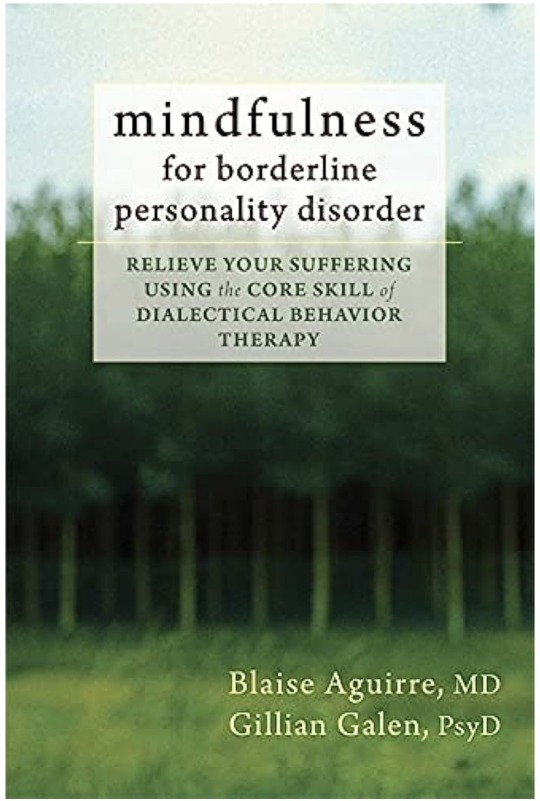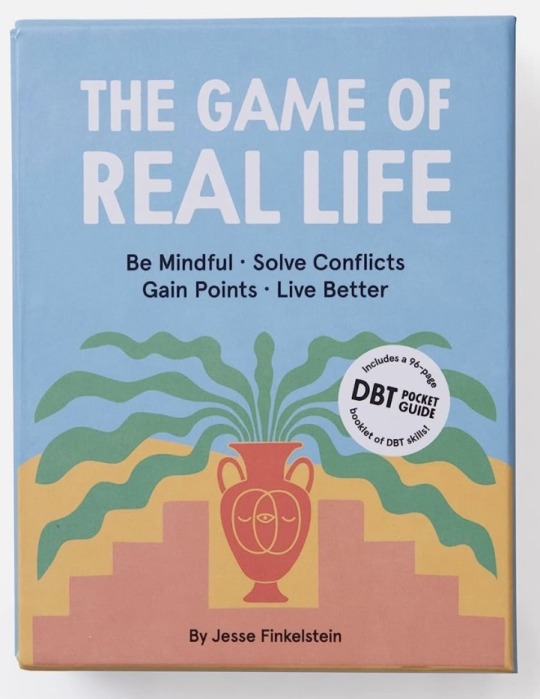#interpersonal effectiveness
Text
You do not owe your partner(s) sex. I mostly see this passed around in the asexual community, and it absolutely needs emphasis there, but this applies to anyone of any orientation. You never owe your partner(s) sex under any circumstance.
If your sex drive or libido is lower than your partner’s, you may feel obligated to “keep up” with them to make them happy. But you have a right to say no, or not be in the mood, or be too tired, or just not want to right now. Your partner(s) should respect your right to say no and your bodily autonomy.
If your partner(s) try to harass, manipulate, or coerce you into having sex when you say no, they’re an asshole. Having said yes in the past does not mean you can never say no. It is not your responsibility or obligation to provide sex. You do not need to violate your own boundaries to make someone else happy. Your partner(s) should respect your right to say no, and if they don’t, they don’t deserve you.
Your body belongs to you, and you decide what’s best for your sexual health. Happy Pride
#hellbrain dump#pride#queer pride#lgbt pride#lgbtq positivity#queer positivity#asexual pride#ace pride#mental health positivity#mental health support#mental health matters#mental health blog#healthy relationships#interpersonal effectiveness#actually borderline#actually bpd
21K notes
·
View notes
Note
Any idea to know what to do and say in terms of conflict?
Depersonalize others' comments & actions
Perceive the person's intentions – are they seeking war or peace?
If their intentions are sound, enter the conversation with the mindset of two individuals vs. a problem – decouple their humanity, emotions, wants, and needs from external factors & situations
Seek to understand, not win through your conversation
Approach the conversation from a solutions-oriented POV
Remember that compromise means both parties walk away happy or at least content with the outcome – self-sacrifice has no place in conflict resolution or negotiation
Hope this helps xx
#conflict resolution#interpersonal skills#interpersonal communication#interpersonal relationships#people skills#work culture#relationship tips#friend advice#interpersonal effectiveness#self confidence#communication skills#femmefatalevibe#q/a#social skills#assertive communication#self improvement
123 notes
·
View notes
Text
My DBT skill graphics organized by module🩷
Please feel free to save them, share, print and submit requests if there’s any skills you’d like sooner than others (as I make more, I’ll add them to this post for easy access).
Mindfulness: FLAME
Emotion Regulation: ABC PLEASE
Interpersonal Effectiveness: GIVE, FAST
Distress Tolerance: STOP, TIPP
#bpd thoughts#actually bpd#bpd#dbt#dialectical behavior therapy#dbt skill#dbt skills#skills#skill guide#skills guide#guide#interpersonal effectiveness#distress tolerance#mindfulness#emotion regulation#emotional resilience#skills graphics’s#resources#resource#mental health#therapy#mental health resources
13 notes
·
View notes
Text
Starting on the DBT Skills Workbook
Things I've learned so far
(Preface+Intro)
DBT has been around for over 25 years.
It has been proven effective, even life changing.
It targets multiple mental disorders including PTSD and substance abuse.
Over the past 25 years DBT has evolved and continues to evolve.
There are plenty of techniques that help with emotional regulation.
Exposure-based cognitive rehearsal is a new technique that helps you learn how to use the new coping strategies when you most need to, in an emotionally elevated state.
Many people experience intense emotions.
Trying to stop your feelings doesn't work.
DBT works for people who experience overwhelming emotions due to genetics and trauma.
There are four important skills DBT teaches:
Distress tolerance
Mindfulness
Emotional regulation
Interpersonal effectiveness
My reactions to feelings will change.
DBT will alter the course of my relationships.
#dbt#dbt skills#distress tolerance#mindfulness#emotional regulation#interpersonal effectiveness#dbt skills workbook#mental health awareness#mental health
4 notes
·
View notes
Text

1 note
·
View note
Text
Interpersonal Effectiveness
D- Describe
E- Express
A- Assert
R- Reinforce
M- Mindfulness
A- Appear Confident
N- Negotiate
0 notes
Text





heartbreaking:the worst people you know just started an emo band
#the worst TWO people you know.beel got dragged into tjis#their band iscalled fatal attraction.asmo came up w it#&they give beel lollipops on stage so he can use both his hands but stillhas something 2munch on......#someone said asmo wld be problematic like 2000s jeffree star and i yhinkthey were on to somethinng#i think his interpersonal conduct with fans would be really distasteful in a way that bands cld only get away with during the 2000s#he wld be well liked. but he wouldhave an effect on them that permanently dmgs their taste in partner and psyche#like his ego wld be just kind of annoying until fans start getting his signature tattooed onthem and stuff and it would immediately go to#asmos head so badd to the point where being arnd him is like an impossible task unless ur the worldsbiggest pushover& soo patient#mine#obey me#asmo#beel#belphie
4K notes
·
View notes
Link
Dialectical behavioral therapy (DBT) is a type of cognitive-behavioral therapy that has been found to be effective in treating substance use disorders (SUD). This therapy focuses on helping individuals tolerate and manage emotions, improve interpersonal relationships and build a life worth living. This can help people to maintain motivation in outpatient treatment and control cravings.
0 notes
Text
A Quick Exercise: Challenge Self-Hate
"I don't deserve to get what I want or need."
How I can challenge this feeling: ________
"If I make a request, this shows that I am weak."
How I can challenge this feeling: ________
"I must be really inadequate if I can't fix this myself."
How I can challenge this feeling: ________
"Making requests is pushy, bad, self-centered, selfish, etc."
How I can challenge this feeling: ________
"Obviously, the problem is just in my head. If I would just think differently I wouldn't have to bother everybody else."
How I can challenge this feeling: ________
"I should be willing to sacrifice my own needs for others."
How I can challenge this feeling: ________
Remember, you are allowed to have wants and needs, you have a right to the things you need even if it may inconvenience others, and asking for what you need does not make you a selfish person. You deserve to take up space, you have the right to live because you are alive.
#treatment mall#dbt#dbt therapy#dbt skills#dbt exercise#mental health positivity#mental health awareness#mental health resources#mental health recovery#mental health support#interpersonal effectiveness#personality disorders#borderline personality disorder#bpd#living with bpd#actually bpd#actually borderline#avpd#ppd#spd#stpd#apd#hpd#npd#dpd#ocpd#borderline personality traits#bpd traits
129 notes
·
View notes
Note
good morning/afternoon/night femme! tysm for answering my other ask and giving great advice. any advice how to confront my vry vry close friend on her negative behaviours. i feel like she now views me as a threat since i became confident so she tries embarassing/humbling me. i was going to quietly distance myself but i decided that i want to explain my side, hear hers and then decide if to pull away (not completly since we're in a close circle) tyyy
Hi love! Glad to hear my response was helpful <3
I would say in a circumstance like this, the best way to confront someone is to ask to have an open dialogue and proceed in the following manner:
Describe their behaviors without labeling them as personality traits (e.g. "I've noticed you do XYZ regarding or in response to XYZ situation/action/remark, etc." vs. "You act very rude and selfish towards me.")
Give them a chance to explain the "why"/intention behind their actions. Allow them to give themselves the benefit of the doubt/a chance for self-awareness before accusing them of intentional toxic behavior
If they seem to be remorseful or self-aware of how their behavior is negatively impacting you (empathy), share how you feel when they act/respond a certain way and bring forth a mutually beneficial solution/way to communicate and respond that allows you to strengthen/preserve your relationship
If they get aggressive and start accusing you of having bad intentions/qualities, remain as neutral as possible – detach emotionally and continue to silently distance yourself. There's only so much you can do to save someone from themselves
Hope this helps xx
#femmefatalevibe#friendship#friend advice#interpersonal relationships#interpersonal skills#interpersonal communication#people skills#social life#social skills#conflict resolution#communication skills#interpersonal effectiveness#assertivecommunication#emotional regulation#emotional intelligence#emotional maturity#higher self#self awareness#self improvement#boundaries#relationship dynamics#friend drama#life skills#q/a
23 notes
·
View notes
Text
So I think I've talked about the after action report of a relationship. It's where you both say what you felt was lacking from the other or that you weren't happy with. You can't always get that and sometimes you just have to go off your best estimates of where you went wrong.
Then you create an action plan on how to improve those areas so you can be a better partner in the future to the next person. It's the prime "learn from failure" strategy.
Well, this time it included revisiting my dbt interpersonal effectiveness.
One of the first exercises is "I want- They want". You write your wants and needs in column one. Then how they were or weren't met in column two. Column three is their wants and needs, column four is how well they were or weren't met.
I dont actually know with M2 that well. He was so repressed and distant so much and so much of what he said was conflicting.
I'm trying to go no contact, but I don't know how to fill it out without just asking him.
Should I text or just skip the exercise since he was so unclear?
0 notes
Text
This post is to elaborate more on my experience in the DBT group and some of the reading and tools I found most helpful to me.
The DBT group I was able to take part in was a remote group that met once a week for 16 weeks via Webex. I was very lucky to get a spot and that my Medicaid covered any cost. It was run by two social workers as part of NYU Langone's Psychiatric Center at Sunset Terrace.
The weeks were broken down based on the 4 Modules (core skill groups) of DBT: Mindfulness, Distress Tolerance, Emotional Regulation, and Interpersonal Effectiveness.
Mindfulness: This is the base of any DBT practice, and what I always had trouble with in the past. Mindfulness is a kind of self-awareness that you can use to break down your experiences and give yourself a kind of reality check. Being mindful is being present and aware of your emotions, your body, and your though process.
There are 3 Minds with which we experience and react to the world: Emotion Mind (acting based on emotions alone), Rational Mind (acting based on facts alone), and Wise Mind (a combination of the first 2 and the goal of mindfulness).
Distress Tolerence: This module focuses on short term solutions for big emotions. The skills involved in this module are called Distraction skills because their goal is to just get you through the wave of emotion, resist any harmful urges, and survive your distress long enough to talk to someone or get to other skills.
There are quite a few skills in this module I found helpful, and I'll go into more detail on them in another post. The skill I think can do the most in the moment is called ACCEPTS, an acronym used to remember what you can do to distract yourself when feelings get too intense.
A - Activities: Watch a comforting tv show or movie, clean, do a puzzle, any task that requires most of your attention so you can focus mindfully on it rather than your emotional spiral.
C - Contributing: Talk to a friend or family member, help someone with a task like cooking or cleaning. The goal being to focus on being with someone rather than being alone in your thoughts. *This obviously would not be a go-to if the person would further trigger you.
C - Comparisons: Compare this emotional storm to a past, worse experience as a way to remind yourself that you've survived before, and you can do it again. *Again, the point of this is not to further trigger yourself, but to prove to yourself that you're strong enough to get through this moment of distress.
E - Emotions: Activate opposite emotions by watching a funny video or recalling a happy memory.
P - Push Away: Mentally push away the triggering thoughts or situation until you are calmer and more regulated and able to deal with the emotions. Commit, for a few minutes, to picturing your problems going into a small box, closing them in it, shoving the box deep in the back of a closet and closing the door. This exercise is a very short term way to remove the weight from your shoulders.
T - Thoughts: Actively think about something completely unrelated to your triggers. Sing your favorite song from memory, do a crossword puzzle or a math problem.
S - Sensations: Interact with your 5 senses mindfully; hug a stuffed animal or a pet, hold ice in your hand and feel it melt, lay flat on the floor and feel your body pressing into the hard surface.
**The best way to utilize this skill is, when you're calm and not feeling any distress, make yourself a list of specific things you can do that correspond with each of these steps. Thinking of something to distract you when you're in the midst of an emotional storm is incredibly hard, so preparing a reference guide for yourself ahead of time is a way to show up for yourself.
Emotion Regulation: This 3rd module focuses on learning to identify your emotions, understand where they come from and what they are trying to tell you, and processing them in a healthy way.
The purpose of all emotions is evolutionary survival. Emotions spur us into action to meet our needs (when you get hangry, you know you need to eat), and communicate danger to ourselves and others. Body language and voice tone can also often communicate emotions before words do.
*Use a feeling wheel to identify your emotions and dig deeper. If you can't process them right away, use a distress tolerance skill until you are able to sit with them.
*The best skill for emotion regulation is ABC PLEASE, an acronym used to help you recognize vulnerability factors in your life and minimize them.
Interpersonal Effectiveness: This last module focuses on skills that help us communicate with others. There are skills like GIVE, which can be used to maintain good relationships with others, and FAST, which can be used to help maintain your self-respect when making a request of someone.
*There are others that I will make graphics for, stay tuned!
Attending the group and learning the skills was only part of what I found helpful on my journey toward stability. I found a book, Mindfulness for Borderline Personality Disorder, that helped break mindfulness down in great detail and very easy to follow language. The book is written specifically for BPD-havers so it's really an excellent resource. The other tool I found helpful is something my therapist suggested I get, The Game of Real Life, which is a game that you can play to learn DBT skills in an interactive and fun way. It comes with a little book that breaks every skill and practice down, Skill cards which I find to be a great go-to for recalling a skill in a moment you need it (after all, it's a whole lot of acronyms to remember), and Conflict cards that give you examples of situations you might experience, and you have to pick a skill card to practice (can be done alone but better with someone you trust to really dive into the communication and regulation skills). I've actually been carrying a few of the skill cards in my purse wherever I go, just in case I need a quick reference in a moment of distress.


I have so much more to share with anyone who's interested. I'll keep posting, making graphics, and if anyone has a specific question about any of the modules, I'll do my best to answer or help you find the information online. DBT groups are super hard to find, in extremely high demand so it's hard to get in, and usually grossly expensive due to this country's horrible healthcare system. I consider myself extremely privileged to have been able to find a great hospital when I needed it and a great group that my insurance covered. I'm here for anyone who isn't as lucky. Let's make DBT accessible and break the stigma of the BPD diagnosis!
#bpd thoughts#actually bpd#borderline pd#borderline personality#borderline personality problems#bpd#bpd life#bpd problems#bpd shit#bpd stuff#dbt#dbt group#dbt skill#dbt skills#distress tolerance#interpersonal effectiveness#mindfulness#mindful#therapy#dialectical behavior therapy#emotion regulation#emotion dysregulation#emotions#relationships#group therapy#group#bpd help#ABC PLEASE#GIVE#FAST
15 notes
·
View notes
Text
Neutral Wants The Truth
Who will be standing in the End? What players, what rules will be twisted to bend? Will the truth be told or will we be left to defend? Neutral sides wants us to pretend. To show our kids what is not truly real? How do they truly know how we truly feel? Anger and blame pointed at us, when they are just notorious, showing off old scars and holding grudges in their own jars. They can’t see all…

View On WordPress
#accountability#ACKNOWLEDGEMENT#behavior#beingthebiggerperson#chaos#communication#conflict#Distress Tolerance#DISTRUST#EMOTIONS#Family#FEELINGS#frustration#imbetterthanthat#interpersonal Effectiveness#judgement#knowthefacts#leaveitinthepast#Mental Health#misunderstanding#MOVEON#nofear#norespect#QUESTIONS#STRESS#TRAUMA#truthfulness#wrongfuldoings
1 note
·
View note
Text
Finally, we get the opportunity to put our Spy Cards worldbuilding in a work. Though there are many questions about such things as "regulation" "how these cards are printed" "who approves a single spy card", and so on, we are here to present a bold new take: this game is based like 60% on obscure roach memory-reading tech that got turned into a card game with absolutely No card-game-related intentions included in the original tech and most of the card vetting is just from the fact that there aren't too many card printers out there and most of them make cards that need to be translated from Roach.
Strictly speaking, as a card game, it is not a terribly good or well-balanced one. It's popular primarily because of a mix of the difficulty involved in getting the data for high-level cards, the fun of seeing the variety of monsters that can be brought to the table, and the incredible amounts of ham and drama that goes into specifically the professional scene.
#we speak#bug fables#bold and new because we think that only maybe three people have even asked questions about the semantics ofc#notable points: professional spy cards is an entirely different thing from competitive spy cards#and the overlap between fanbases means that there is occasionally some REALLY incomprehensible beef about deck composition#also every time that carmina uses astotheles' card in one of her decks she has to pay him royalties#this is because he approached her personally about it. it was an Experience.#the roach tech thing also means that like a decent chunk of high level spy cards players know like. a handful of words in roach#competitive spy cards is generally smaller than professional and involves shit like actual deck composition and like#trying to get ahold of That One OP Card so that you can utterly crush people at the local tournament. actual card geek shit.#professional spy cards is basically wrestling in card game form and does NOT optimize the decks very well#because 99% of the draw of PROFESSIONAL spy cards is that youre gonna watch a whole bunch of people roleplay elaborate storylines#while also playing a game where most professional venues will invest in tech to read card crystals and summon appropriate effects#its a spectacle sport. specifically a spectacle sport where the actual game is mostly framework for Cool Monsters and Interpersonal Drama#carmina is a heel#this might be slightly incoherent but we'll clean it up later maybe. we are taking a break from sketching comms to write rn
43 notes
·
View notes
Text
whinging
I'm always at my worst levels of hateration in regard to white U.S. Americans or French people who speak Moroccan Darija because 1. I'm jealous 2. they (at least the ones who've told me about it) tend to be very weird to me, exotify me, try to be friends with me despite being sort of racist to me, expect me to sympathise with their complaining about how Moroccan nationals treated them with too much veneration on account of their blue eyes and blonde hair (which is a weird thing to have happened to me more than once and also something I don't believe happened), expect me to collude in their racist or Orientalist impressions of Morocco and Moroccan nationals, expect me to collude in their othering of Darija and view it 'through' English or fusha (standard Arabic) the way they do, echo racist stereotypes about Moroccans to me despite the fact that we are both currently in Morocco, &c. &c.
& it's just kind of adding insult to injury because my ethnicity has, if anything, hindered my acquiring this language more than it's helped. A white U.S. American can learn fusha because it seems fun or because they want to join in on the imperialist slaughter of Arabs and other Arabic-speakers and this seems like a good way to start (fully half the people in my Arabic 101 class were planning to join the U.S. army), or learn Darija because it seems fun or because they want to do linguistic or ethnographic fieldwork in Morocco to satisfy their curiosity or advance their careers.
I did speak Darija natively, but then was told not to speak it in public in the U.S. as a small child & ignored and chastised if I did; my father effectively ceased all contact with me until the window for first language acquisition had passed, at which point he criticised me for not knowing Darija (??? lol), so there's all of this guilt and shame and embarrassment built up around it that doesn't exactly help anyone learn. the tourist- or imperialist-centred nature of much of the materials available causes disconnect for me that a white speaker wouldn't necessarily feel. when I wanted to apply for a Fulbright scholarship to study Darija and to teach linguistics in Morocco, the woman who interviewed me told me that I was less likely to get the scholarship because I was Moroccan, simce the scholarship was based on "gaining new experiences" (and "spreading U.S. culture," which is why instead of applying to study in a different country as she had suggested, I nope'd out of there very fast)
#also I know this isn't a 'real' problem#I remember a whole thread of people on keeweefarms speculating about how I was obviously exaggerating the effect that racism had on my life#which seems strange because I've never claimed that it has had any impact on my life other than people being rude to me#like this is all very interpersonal and emotional stuff. what about it seems unrealistically bad to you? it is so mild? lmao#personal#Darijaposting
45 notes
·
View notes
Text
I still can't get over those public worlds having people playing bouncer. Sagely teaching the next generation the importance of moderation and curating their social experiences n then it's like Noooooooooo not like thaaaaaat
#Not in a way that annoys ME!!!!#all of my objections are 'NOT like THAT'#like this is clearly effective. the load-in regions were full of shrill children.#I have no idea what the areas past the door prefab were like. but presumably children at least aping deeper voices#and like the gatecrashing toddlers ARE a problem#and the previous insular more intimate ways people socialized to keep kids out#were bad for public world type socializing! friends lists and private worlds and stuff#this WAS clearly a good balance between public (daycare) where it's on you to block kids continually#and high-octane interpersonal drama of maintaining private spaces#But I CAN'T with someone CARDING ME in and I cannot stress this enough VIRTUAL REALITY#GET FUCKEDDDDDDDDDDDDDDDDDD SORRYYYYYYYYYYYY
12 notes
·
View notes